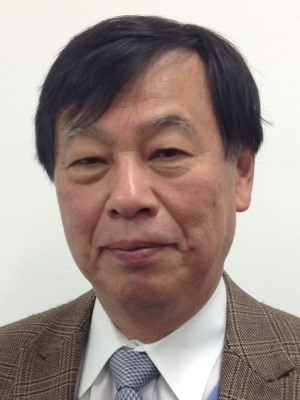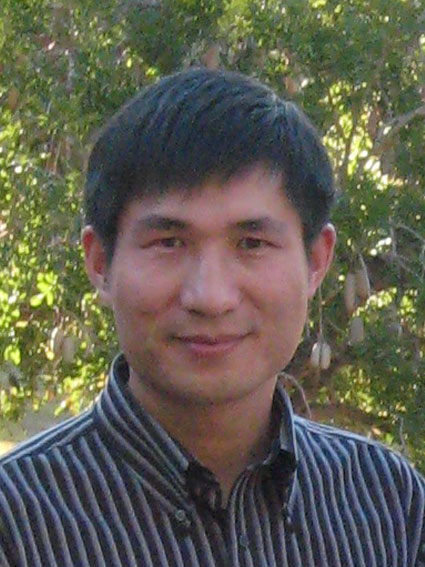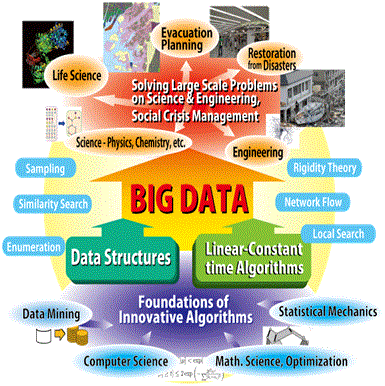APWC on CSE 2016
3rd Asia-Pacific World Congress on Computer Science and Engineering 2016
4-6th December, 2016. Sofitel Fiji Resort & Spa, Denarau Island, Fiji
3rd Asia-Pacific World Congress on Computer Science and Engineering 2016
4-6th December, 2016. Sofitel Fiji Resort & Spa, Denarau Island, Fiji
APWC on CSE & APWCE 2016 IEEE Computer Society Proceedings (Zip)
APWC on CSE 2016 Program (PDF)
Guest Registration Status(PDF)
* Three special journal issues are available as mentioned in below
*3rd APWCE on CSE 2016 Registration Form
*IEEE Author Kit for 3rd APWC on CSE 2016 Camera Ready Version Uploading
* The paper review outcome (Accept/Reject) has been e-mailed to the corresponding author.
* The paper/abstract submission date has been extended until 30th September 2016.
* Online paper submission is open now. Please visit Guideline & Templates section.

Professor Katoh Naoki
School of Science and Technology
Kwansei Gakuin University, Japan
A lot of attention has been paid to “Big Data” from the beginning of this century. Because of huge data volume, theory of algorithm is now faced with a fundamental innovation. Under such circumstances, our project proposes a new computation paradigm called “Sublinear Time Paradigm”. In order to realize such paradigm, we dvelop three fundamental technologies; sublinear time algorithm, sublinear data structure, and sublinear modeling. Integrating these three technologies, we establish the foundations of algorithms for big data. Project called "Foundations of innovative algorithm towards big data” was initiated in October, 2014, which is funded by Japan Science and Technology Agencies. This is 5.5-year project and its total budget amounts to three hundred thousand yen.The project consists of three groups corresponding to sublinear-time algorithm, sublinear data structure and sublinear modelling. The total number of researchers involved in this project is more than 50 including graduate students. After two years passed, we have achieved several important results both in theory and applications which are going to present in this keynote session.
Professor .... Prof .... is a Senior Member of the IEEE.

Professor Feng Xia
Assistant Dean, School of Software
Head, Department of Cyber Engineering
Director, Mobile and Social Computing Laboratory
Dalian University of Technology (DUT), China
The field of Big Scholarly Data is rapidly emerging. Recent years have witnessed the exponential growth of data in all scientific disciplines as a result of various research and development activities. These data contain e.g. journal articles, conference proceedings, degree theses, books, patents, presentation slides and experimental data. Digital libraries and repositories have been built to make scholarly data accessible. For instance, DBLP indexes more than 3 million article records of major computer science journals and proceedings, while Google Scholar might have hundreds of millions of documents. The availability of big scholarly data enables researchers to better understand the nature of science, and more importantly, to become connected through the worldwide web of scholars. In this talk, recent advances in big scholarly data will be introduced. Promising directions of research in this emerging field will be discussed with respect to opportunities and challenges.
Dr. Feng Xia is currently Full Professor in Dalian University of Technology (DUT), China. He is Head of Department of Cyber Engineering and Assistant Dean of School of Software. He is the (Guest) Editor of over 10 international journals and a (founding) organizer of several conferences. He serves as General Chair, PC Chair, Workshop Chair, Publicity Chair, or PC Member of dozens of conferences. Dr. Xia has authored/co-authored two books, over 200 scientific papers in int’l journals and conferences (such as IEEE TMC, TBD, TCSS, TC, TPDS, TETC, THMS, TVT, TIE, ACM TOMM, WWW, JCDL, and MobiCom) and 2 book chapters, and has edited 3 int’l conference proceedings and 4 books. He has an h-index of 26, an i10-index of 84, and a total of more than 2900 citations to his work according to Google Scholar. Dr. Xia received a number of awards. He is named on the 2014 list and the 2015 list of Most Cited Chinese Researchers (published by Elsevier). He is a Senior Member of IEEE (Computer Society, SMC Society) and ACM (SIGWEB), and a Member of AAAS.
3rd Asia-Pacific World Congress on Computer Science and Engineering 2016 (APWC on CSE 2016) in Fiji on 5-6th December 2016. APWC on CSE 2016, the International Conference on Computer Science and Engineering, aims to bring researchers, academics, scientists, industry people in a common platform yearly basis for presenting and discussing new innovative technologies in the area of Computer Science and Engineering. In particular, Big Data, Biomedical Engineering, Cloud Computing, Information Systems, Multimedia, Networking & Security, Robotics and Software Engineering. APWC on CSE 2016 is expected to give an overview of the state of the art as well as upcoming trends, and to promote discussion about the pedagogical potential of new technologies in Computer Science and Engineering to Asia-Pacific region.
Kansai University , Japan
Professor A B M Shawkat Ali, The University of Fiji, Fiji
A/Professor MGM Khan, The University of The South Pacific, Fiji
Dr. Kabir Mamun, The University of The South Pacific, Fiji
Dr Shah Miah, Victoria University, Australia
Track 1: Big Data
Dr. Meena Jha, Central Queensland University, Australia
Track 2: Biomedical Engineering
Professor Alamgir Hossain, Anglia Ruskin University, UK
Track 3: Cloud Computing
Professor Eisuke Kita, Nagoya University, Japan
Track 4: Information Systems
Professor Shamim Khan, Columbus State University, USA
Track 5: Multimedia
Dr. Faisal Tariq, University of London, UK
Track 6: Networking, Security, and Internet of Things
Professor Nurul Sarkar, Auckland University of Technology, New Zealand
Track 7: Robotics
Dr. F M Rabiul Islam, The University of The South Pacific, Fiji
Track 8: Software Engineering
Dr. Norsaremah Salleh, IIUM, Malaysia
Track 9: Applications in Business and Social Sciences
Dr. Keiji Takai, Kansai University, Japan
Anal Kumar, Fiji National University, Fiji
Talk One
Keynote Speaker: Professor Katoh Naoki, Kwansei Gakuin University, Japan
Topic: Foundations of Innovative Algorithms towards Big Data
Abstract:
A lot of attention has been paid to “Big Data” from the beginning of this century. Because of huge data volume, theory of algorithm is now faced with a fundamental innovation. Under such circumstances, our project proposes a new computation paradigm called “Sublinear Time Paradigm”. In order to realize such paradigm, we dvelop three fundamental technologies; sublinear time algorithm, sublinear data structure, and sublinear modeling. Integrating these three technologies, we establish the foundations of algorithms for big data. Project called "Foundations of innovative algorithm towards big data” was initiated in October, 2014, which is funded by Japan Science and Technology Agencies. This is 5.5-year project and its total budget amounts to three hundred thousand yen.

The project consists of three groups corresponding to sublinear-time algorithm, sublinear data structure and sublinearmodelling. The total number of researchers involved in this project is more than 50 including graduate students.
After two years passed, we have achieved several important results both in theory and applications. We shall introduce some of important results we obtained in this project such as (1) constant-time algorithm for web graph, (2) a polynomial-time algorithm for stable signal recovery in quasi-Lq norm with 0<q<1 which has important applications to compressed sensing, (3) online sublinear compression algorithm and its hardware implementation, (4) evacuation planning against for tsunami, and (5) protein function analysis by combinatorial rigidity theory.
Talk Two
Keynote Speaker: Professor Feng Xia, Dalian University of Technology, China
Topic: Big Scholarly Data: Towards Connected Scholars
Short Bio:
Dr. Feng Xia is currently Full Professor in Dalian University of Technology (DUT), China. He is founding Director of the Mobile and Social Computing Laband Assistant Dean of School of Software. He is the (Guest) Editor of over 10 international journals and a (founding) organizer of several conferences. He serves as General Chair, PC Chair, Workshop Chair, Publicity Chair, or PC Member of dozens of conferences. Dr. Xia has authored/co-authored two books, over 200 scientific papers in int’l journals and conferences (such as IEEE TMC, TBD, TCSS, TC, TPDS, TETC, THMS, TVT, TIE, ACM TOMM, WWW, JCDL, and MobiCom) and 2 book chapters, and has edited 3 int’l conference proceedings and 4 books. He has an h-index of 24, an i10-index of 78, and a total of more than 2700 citations to his work according to Google Scholar. Dr. Xia received a number of awards. He is named on the 2014 list and the 2015 list of Most Cited Chinese Researchers (published by Elsevier). He is a Senior Member of IEEE (Computer Society, SMC Society) and ACM (SIGWEB), and a Member of AAAS.
Abstract:
The field of Big Scholarly Data is rapidly emerging. Recent years have witnessed the exponential growth of data in all scientific disciplines as a result of various research and development activities. These data contain e.g. journal articles, conference proceedings, degree theses, books, patents, presentation slides and experimental data. Digital libraries and repositories have been built to make scholarly data accessible. For instance, DBLP indexes more than 3 million article records of major computer science journals and proceedings, while Google Scholar might have hundreds of millions of documents. The availability of big scholarly data enables researchers to better understand the nature of science, and more importantly, to become connected through the worldwide web of scholars. In this talk, recent advances in big scholarly data will be introduced. Promising directions of research in this emerging field will be discussed with respect to opportunities and challenges.
Scope
We are delighted to invite authors in the area of Computer Science and Engineering to submit their recent research paper at 3rd Asia-Pacific World Congress on Computing Science 2016 (APWC on CSE 2016) in Fiji on 5-6th December 2016. APWC on CSE 2016, the International Conference on Computing Science, aims to bring researchers, academics, scientists, industry people in a common platform yearly basis for presenting and discussing new innovative technologies in the area of Computer Science and Engineering. In particular, Big Data, Biomedical Engineering, Cloud Computing, Information Systems, Multimedia, Networking & Security, Robotics, Software Engineering and Applications in Business and Social Sciences. APWC on CSE 2016 is expected to give an overview of the state of the art as well as upcoming trends, and to promote discussion about the pedagogical potential of new technologies in Computer Science and Engineering to Asia-Pacific region.
Conference Areas
Each of these topic areas is expanded below but the sub-topics list is not exhaustive. Papers may address one or more of the listed sub-topics, although authors should not feel limited by them. Unlisted but related sub-topics are also acceptable, provided they fit in one of the following main topic areas:
AREA 1 :Big Data
- Big data mining
- Big data scalability and reliability
- Big data security
- Big sensor data management
- Managing and mining data in cloud computing
- Managing and mining social networking data
- Privacy in big data
- Others
AREA 2 : Biomedical Engineering
- Biosignal sensors and signal processing
- Body Area Network (BAN) for medicine and healthcare
- eHealth systems and pervasive healthcare
- Preventive care & long-term patient management
- Privacy and security issues for biomedicine
- Smart textiles for wearable BAN
- Telemedicine and Telemonitoring
- Wearable and implantable devices/systems
- Others
AREA 3 : Cloud Computing
- Access Control
- Cloud Computing Security
- Intrusion Detection Methodologies and Applications
- Reliable Computing
- Trust Model and Trust Management Policy
- Trusted Computing
- Others
AREA 4 : Information Systems
- Applications of Information Theory
- Business Process Change
- Deductive vs Inductive Approaches
- Enterprise Application Integration
- Enterprise Resource Planning
- Ethical, social, privacy, security and moral issues in an e-society
- IS and Change Management
- IS and Organisation Development
- IS Quality Management and Assurance
- Knowledge Management
- Multi-Terminal Information Theory
- Organisational IS Roles
- Outsourcing Risks, Barriers and Opportunities
- Quantitative vs. Qualitative Methods
- Risk Management in IS Design and Development
- Others
AREA 5 : Multimedia
- Compression algorithms
- Crowdsourcing in multimedia systems and applications
- Human-centered approaches to mobile and multi-device interaction with multimedia
- Mobile augmented and mixed reality
- Mobile multimedia services
- Novel multimedia interfaces and technologies for multi-device interaction
- Novel multimedia service architectures
- Others
AREA 6 : Security and Internet of Things
- Communication networks
- Future networks and architectures
- Green the IoT
- IoT applications and services development
- Learning Automats Methodologies and Applications
- Machine-to-machine communications
- Metrics, Measurement and Evaluation of the IoT
- Modelling and simulation of communications networks
- Network architecture and system design for the IoT
- Algorithms and data analysis techniques for the IoT
- Security, Trust and Privacy in the IoT
- Sensor and Actuator Networks
- Wireless and mobile networking
- Others
AREA 7 : Robotics
- Cognitive Approach for Robotics
- Collective and Social Robots
- Engineering Applications
- Humanoid Robots
- Human-Robots Interfaces
- Industrial Networks and Automation
- Intelligent Transportation Technologies and Systems
- Mechatronics Systems
- Physical Sensors
- Grasping and Manipulation
- Mobile Robots and Intelligent Autonomous Systems
- Network Robotics
- Surveillance, Fault detection and Diagnosis
- Others
AREA 8 : Software Engineering and Applications in Business and Social Sciences
- Next frontiers of Software Engineering: use of big data
- Rapid Application Development for Mobile
- Service Oriented Architectures
- Software Architectures and Engineering for Novel Systems
- Software Engineering for Mobile Systems
- Software Engineering for the Web
- Software testing
- System Software for Embedded and Ubiquitous Systems
- Others
AREA 9 : Applications in Business and Social Sciences
- Applications using human-computer interaction
- Business engineering
- Business intelligence
- Business studies of applications and technology
- Crowd sensing
- Enterprise computing and applications
- Mobile phone sensing
- Opinion mining
- Pervasive computing
- Social and Community Intelligence
- Social aspects and issues of applications and technology
- Social Behaviour Modelling
- Social engineering
- Social network analysis
- Social Opinion Representation
- Others
Paper Submission
Authors can submit their original work in the form of a Regular Paper, representing completed and validated research about an issue discussing ideas, facts, situations, methods, procedures or results of scientific research focused on one of the conference topic areas. All papers must be submitted under the following IEEE guideline through the online submission. After the paper submission, authors will receive an automatic confirmation e-mail.
Publication
APWC on CSE 2016 will follow two publication models. All the conference paper submission will go through first for the peer review process. Then the accepted papers will place in the Digital IEEE conference proceedings. The Conference content will be submitted for inclusion into IEEE Xplore as well as other Abstracting and Indexing (A&I) databases. IEEE reserves the right not to publish any proceedings that do not meet these standards. Few top ranked paper based on the reviewers ranking will be selecting for the following below journal special issues.
Yi Zuo, Nagoya University, Japan

The conference will be held at the Denarau Island, Fiji. Get ready to enjoy a unique trip in a wonderful island in this Globe. Just 20 minutes drive from Nadi International Airport, Fiji.
The warm Fijian welcome makes you feel you’ve slipped into a timeless haven. Indeed, the leisurely pace here imbues you with a sense of calm. Making your way across the causeway from mainland Fiji takes you into a whole new realm.

Submission Guidelines
Authors should submit a paper in English, carefully checked for correct grammar and spelling, addressing one or several of the conference areas or topics.
Each paper should clearly indicate the nature of its technical/scientific contribution, and the problems, domains or environments to which it is applicable. To facilitate the double-blind paper evaluation method, authors are kindly requested to produce and provide the paper WITHOUT any reference to any of the authors, including the authors’ personal details, the acknowledgements section of the paper and any other reference that may disclose the authors’ identity.
All papers must be submitted through the online submission process which is accessible in the conference main page under 'Actions' and should follow the instructions and templates provided in the documents below, which are also the templates for the camera-ready submission. After the paper submission has been successfully completed, authors will receive an automatic confirmation e-mail.
Conference Paper Formats, including Special Sessions
Authors can submit their work in the form of a Regular Paper, representing completed and validated research, or as a Position Paper, portraying work in progress or an arguable opinion about an issue.
Regular Papers
Submission: Regular Papers should be 8 pages long, including references, tables, graphs, images and appendices. Submissions with less than 6 pages or more than 10 pages will be automatically rejected.
Acceptance: After a double-blind peer review, qualifying Regular Papers may be accepted as either Full Papers or Short Papers.
Presentation: Regular Papers classified as Full Papers are awarded a 30’ minutes slot for an oral presentation at the conference. Regular Papers classified as Short Papers are given either a 20’ minutes slot for an oral presentation or assigned to present at a Poster Session. Authors who have been assigned an oral presentation, either Full or Short, may however also choose to present at a Poster Session instead, should they prefer it.
Publication: Regular Papers classified as Full Papers will be assigned a 8-pages limit in the Conference Proceedings, while Regular Papers classified as Short Papers have an 6-pages limit. If absolutely necessary, authors may increase the total number of pages by a maximum of 2 extra pages, for an additional fee. The total number of pages to consider is the number obtained after the paper has been correctly formatted according to the appropriate template. The Conference Proceedings will be published under an ISBN number by IEEE and include final versions of all accepted papers, adjusted to satisfy reviewers’ recommendations. Online publication is exclusive to papers which have been both published and presented at the event.
Indexation: The proceedings will be submitted to Thomson Reuters Conference Proceedings Citation Index (ISI), INSPEC, DBLP, EI (Elsevier Index) and Scopus for indexation.
Templates and Formatting
Using these templates is strongly advised to all authors submitting a paper for reviewing and mandatory for those uploading the camera-ready version of their papers. Failure to produce correctly formatted camera-ready submissions may result in the paper’s exclusion from the Proceedings. We strongly encourage to authors to use IEEE templates only.
Copyright Transfer Agreements to IEEE
One form per paper, not per author.
IMPORTANT: The Copyright Form must be completed and return to APWConCSE 2016 Web Coordinator Mr. Neeraj A Sharma via e-mail: [email protected].
All papers need to be submitted electronically through the paper submission system (www.ilab-australia.org/online-submission/) with MS-Word format. The materials presented in the papers should not be published or under submission elsewhere. Each paper is limited to 8-10 pages (or more than10 pages with over length charge) including figures and references using IEEE Manuscripts style (two columns, single-spaced, 10 fonts). You can confirm the IEEE Author Guidelines at the following web page: http://www.computer.org/web/cs-cps/.
Quick guide for Authors
Step 1:Please click here: www.ilab-australia.org/online-submission/
Step 2: Choose Conference eg: APWC on CSE 2016 >> Click View Conference tab
Step 3: Click on Login tab
Step 4: Register as an Author (please click on ' : Able to submit items to the conference.' ) and proceed to submit your paper
Note: If there is any issue regarding paper submission, please e-mail: <[email protected]>
2nd Asia-Pacific World Congress on Engineering 2016 (APWCE 2016), 5-6th December, 2016. Sofitel Fiji Resort & Spa, Fiji
Neeraj A. Sharma (Mr.)
Department of Computer Science and Information Technology
School of Science and Technology
The University of Fiji
Fiji
Phone: +679 9379056 E-mail: [email protected]